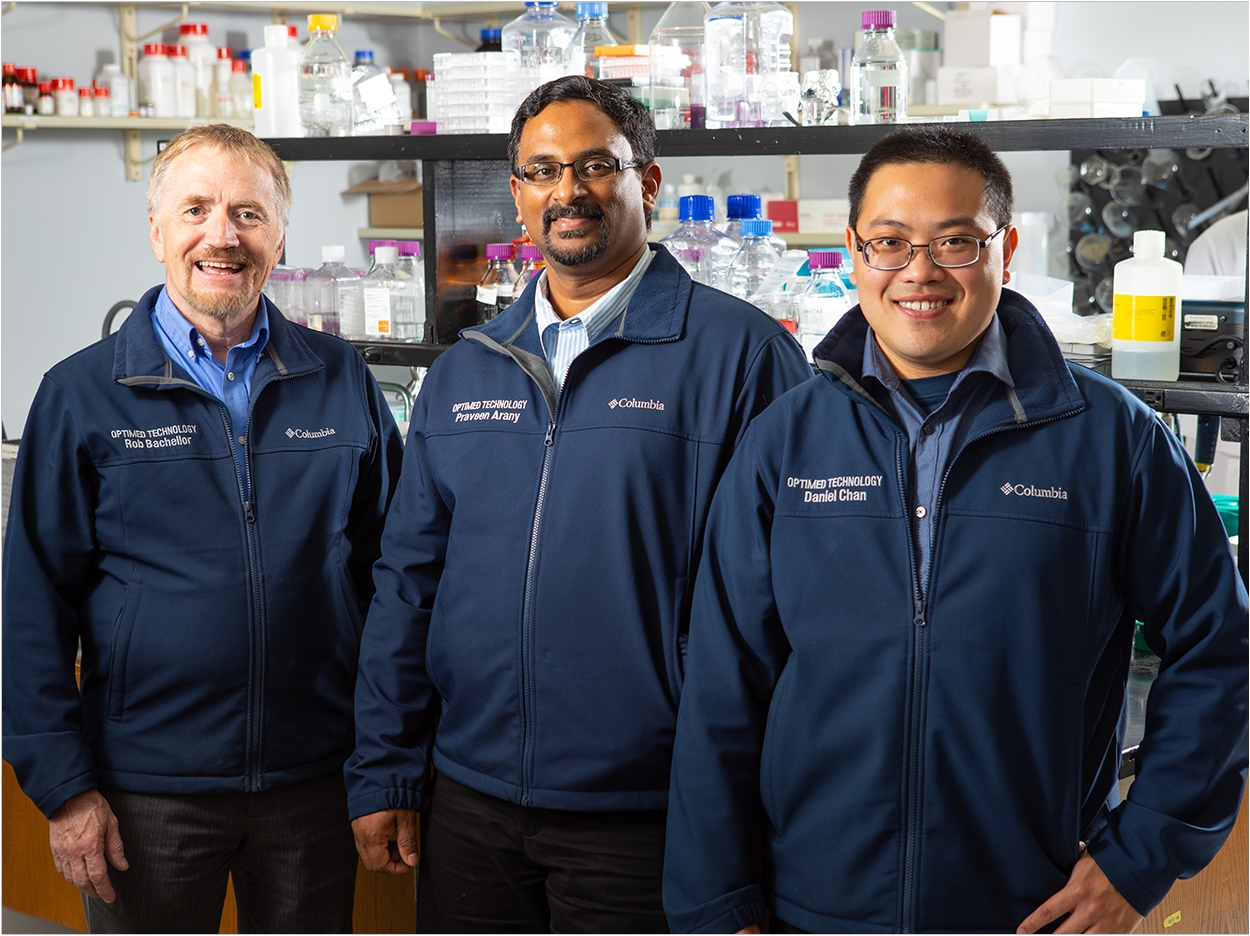
The University at Buffalo (UB) School of Dental Medicine and university spinoff OptiMed Technology have received a $50,000 manufacturing grant from the Jeff Lawrence Innovation Fund to accelerate the development of their products to market.
OptiMed Technology uses nanotechnology to develop toothpaste and 3-D printed denture materials that treat irreversible gum overgrowth and fungal infections, which affect millions of people each year, the school said.
The technology is based on research from the lab of Praveen Arany, DDS, PhD, assistant professor of oral biology at the UB School of Dental Medicine, who recently developed polymer microcapsules that release medication in a controlled manner.
Administered by FuzeHub, the Jeff Lawrence Innovation Fund annually provides $1 million to help small to medium-size New York State manufacturing and technology companies enhance the research, development, and commercialization of their products and services.
The grant will support the production of OptiMed Technology’s first product, digoDent, a supplement toothpaste that can both prevent and treat the development of drug-induced gingival overgrowth.
Gingival overgrowth is a side effect of several commonly prescribed drugs, including immunosuppresants, anti-seizure, and high blood pressure medications. The condition, which affects more than a million people each year, results in irreversible scar tissue in the gums that causes them to cover the teeth, interfering with chewing, speaking, and oral hygiene.
Current treatment for gingival overgrowth is limited to surgery to remove scar tissue. However, these surgeries cost between $500 and $1,500 and are temporary, as recurrence rates are as high as 40%, said Arany. By delivering the drug within toothpaste, he said, patients can begin therapy without altering their daily routines.
“Compliance is a major issue with preventive treatments. It is more about lifestyle and economics than scientific evidences alone,” Arany said.
The treatment was identified by Saeed Ur Rahman, PhD, lead scientist at Arany’s lab. Using several lab models, Rahman investigated the use of an innovative toothpaste formulation to effectively prevent and treat gum disease, the school said.
“The importance of oral health in one’s overall health is not appreciated enough,” Rahman said. “Caring for your mouth, teeth, and gums will increase the chances that your body remains strong and vital throughout your life.”
OptiMed Technology also is working with the UB School of Pharmacy and Pharmaceutical Sciences and the Center for Dental Studies within the UB School of Dental Medicine to develop and test digoDent for launch in 2020.
The company, which operates with a team of 10 scientists, engineers, and advisors out of Foster Hall on the UB South Campus, recently received a $25,000 grant from the UB Center for Advanced Technology in Big Data and Health Sciences, part of the university’s Office of Business and Entrepreneur Partnerships.
Related Articles
Sensory Cells in the Gums Guard Against Periodontitis
Plaque-Identifying Toothpaste Reduces hs-CRP
Remineralizing Material Boosts Toothpaste and Restorations


